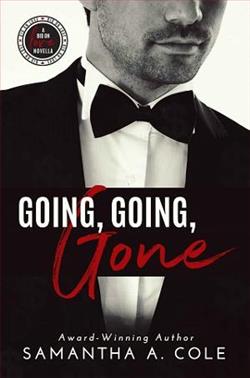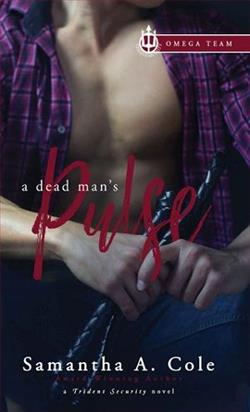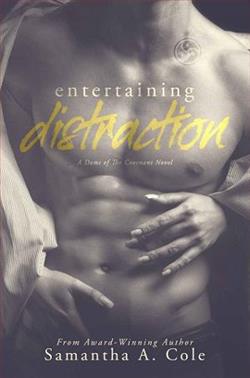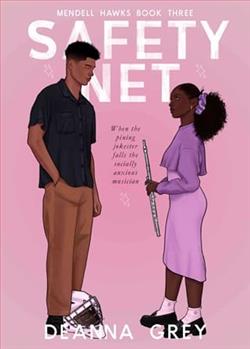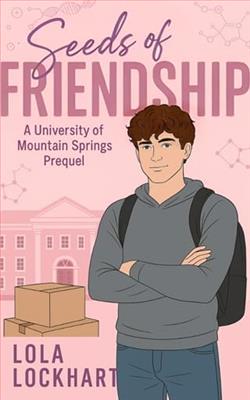Page 52 of Reverse
“I study musicalevolutions, mostly by listening to theirmusic. I don’t pay attention to the useless details so many seem to obsess over.”
“Yeah, well, as a human-interest writer,” I look back to the sweater, “I would love to know what was going on in his mind.”
“Pain,” he surmises easily. “Kurt and Eddie both notoriously hated fame and media, so if nothing else, we havethatin common.” He flashes me a condescending, full-toothed grin, and I lift my free hand giving him the bird. He squeezes my other in jest before leading me to the next room. It’s when we reach the entrance that I see the reason he brought me here.
“This is . . . wow,” I shoot him a grin as we walk into the circular room full of glass cases dedicated solely to the Dead Sergeants.
Slightly starstruck, I turn to Easton. “How does it feel to know your dad aided in keeping Seattle known for the talent it houses?”
“Dad came fromyourneighborhood. The whole band originated in Austin.”
“True, but they’re synonymous with Seattle now, and you didn’t answer my question.”
“All the things I’m supposed to feel, I guess,” he relays easily. “Mostly proud and . . . inspired.”
I walk to the first prompt, reading about the various memorabilia on display—all donated by the band members. The first section is dedicated to Ben First, the Dead Sergeants’ lead singer. A life-size picture of him on stage in the back of the case. The photo speaks volumes as Ben sings, clearly in his element, hand wrapped around a mic. His wardrobe consisting of nothing but a Home Depot apron, tapered jeans tucked into calf-length black boots, his toned, muscular build alluring. It’s obvious why the photo was chosen because it captures his stage presence perfectly—curly blond hair untamed, eyes beseeching, expression unguarded.
I read the eye-level explanation of the display, which states Ben wore the apron during their first tour as part joke and nod to where he started. I grin. “One day, his most useful tool is a box cutter, the next, it’s a mic, and he’s singing for a crowd ofthousands.”
“Took a whole lot longer than a day,” Easton relays absently, seemingly lost in a memory as I study Ben closely.
I can see the appeal he had then and find myself empathizing with Lexi, his on-again-off-again ex-girlfriend who eventually mothered his only child. In the movie, Ben and Lexi’s relationship was hot, volatile, and ended when Lexi cheated on Ben after the Sergeants were signed. Her insecure actions forced Ben to walk away. From the way she was portrayed—much like Stella—Lexi was a pistol, and it saddens me that even the most confident of women must feel helpless at times, thanks to the constant threat of those who want to take their place.
“I can’t imagine dating a man so sought after, sowanted,” I find myself saying aloud. “It would drive me insane.”
Easton scoffs. “Ben’s just likeyouandme, andthem,” he lifts his chin toward a few people wandering into the room opposite ours. “Temptation can be both avoided and ignored. I’ve seen it for myself. Granted, most of the band were settled down by the time I was born. When we toured,no onegot backstage. We had security on every floor of every hotel. It was mostly all business until the show.”
“I hear you, but those who can’t put together a group of meaningful words and pair them with an emotion-evoking melody are heavily intrigued by those who can. Not to mention the stage presence. It’s sexy as hell, Easton. I might not be a music fanatic, but evenIunderstand the allure and am not immune to it.” I nudge him, “But for all I know, you sound like a gorilla on the mic, so you’re no threat to me.”
The biggest lie you’ve told thus far, Natalie. Going for the gold, are we?
I drink in his profile outlined in clear view in the reflection of the glass case, wondering if he’s mirroring his own future as he looks into Ben’s past. When he catches my gaze, instead of shying away, I smile, and he returns it, his fingers brushing mine as we walk down to the next display. Just inside is a picture of Rye Wheelan, the Sergeants’ lead guitarist, playing the Fender he donated, which sits propped in a battered case covered in old bumper stickers. I laugh at a few of them.
A step over, homemade T-shirts from Adam Shaw’s raunchy collection are displayed along with a bass in two pieces, only held together by the strings.
“I take it these two are the goofballs?”
“Most definitely,” Easton says with a grin. “I’ve had to parent them on more than one occasion.”
“This is yourfamily,” I hear the slight awe in my voice, “in a glass case.”
“I have to admit, it’s a little fucking weird.”
“Do you remember a lot about being on the road?”
“Plenty. It took up most of my childhood summers. But only for three or four months out of the year. My parents were determined to give me some semblance of normalcy, so I missed a lot of the European dates. Yet by the time I was old enough to crave it, I was foaming at the mouth along with my dad to hit the road. I loved it,” he admits freely, “I really, really fucking loved it.”
I nudge him. “So, you have that to look forward to.”
He dips his chin noncommittally before sauntering over to the last case. Like Ben’s display, at the back sits a life-size black and white picture of Reid, fingers firmly gripping his sticks, arms raised and poised to rain hell on his drums. Shirt tucked in his back pocket, Reid’s expression is much like Easton’s when he gets lost in the music.
Though I’ve attributed Easton’s skin and hair color to Stella, in this photo Reid and Easton’s likeness is striking.
Inside the case, situated in front of the life-size picture, sits a Drummer’s Workshop kit. A battered set of Reid’s drumsticks—one with the tip broken off—rests against the large, tattered bass drum. Reading the prompt, I recognize I was right in assuming it’s the set of drums Stella won by chance and sent to Reid after they broke up. Her gesture was a plea to encourage him to keep going, evenafterhe broke her heart and left Austin. A slight bitterness seeps into me, but at the same time, I know the gesture was probably what kept him from quitting.
“They saved him,” Easton confirms, staring at the kit. “It cut him deep to donate them, but he didn’t want them rotting away in storage. He figured at least they’ll be preserved here. Mom saw in him what he couldn’t see for himself,” he utters, unmistakable pride in his eyes for what his parents have.
I nod, ashamed my confidence is shaky in the same respect, and I allowed—am allowingit to happen. Easton trails me into a nearby room as I stare blankly at the next display. His warmth surrounds me before he rests his chin on my shoulder, my body reacting in kind as it begins to thrum with awareness.








